President Bola Ahmed Tinubu’s decision to cancel his trip to the G20 Summit in South Africa and postpone his planned visit to Angola for an African Union event is not a routine scheduling adjustment; it is a statement about priorities in a country under siege.
Within days, Nigeria has been hit by three major shocks: the kidnapping of schoolgirls, a terrorist attack on a church community in Kwara, and the gruesome, avoidable death of Brigadier General Musa Uba in an ISWAP ambush near Damboa.
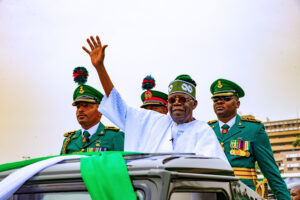
On any normal diplomatic calendar, this G20 summit would have been unmissable for Nigeria. It is the first hosted on African soil, a key moment for the continent’s voice on the global stage, and a critical platform for Nigeria’s renewed investment drive and repositioning in the international system—especially in the context of recent “Country of Particular Concern” debates and the need to rally partners against sanctions and economic pressure.
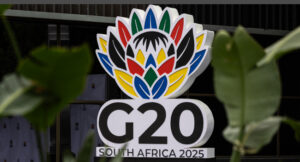
Complicating the summit further is former U.S. President Donald Trump’s own decision to boycott the meeting and bar any U.S. government official from attending. In effect, the G20 is convening under a cloud: one of its most powerful members is absent by choice, and Africa’s largest democracy is now absent by necessity. That contrast is stark. While Washington’s no-show is driven by geopolitical and ideological calculations, Abuja’s decision is driven by blood on Nigerian streets and an officer’s body in the theatre of war.
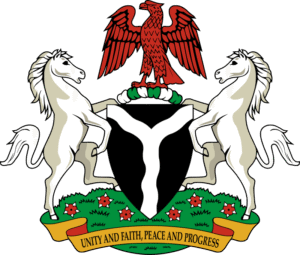
Tinubu’s choice to remain in Nigeria, in this context, is more than optics. It positions him as a Commander-in-Chief who reads the moment for what it is: a domestic emergency that cannot be outsourced, cannot be delegated away, and cannot be managed from a conference table abroad. At a time when communities are traumatised, troops are demoralised and families are in anguish, leaving the country for even the most important summit would have sent the wrong message.

The recent kidnapping of schoolgirls is a brutal reminder of a wound that never truly healed after Chibok and Dapchi. Every extra day those girls remain in captivity compounds the trauma—for them, their families and the nation’s conscience. The church attack in Kwara underlines that no region can assume immunity from terror anymore; soft targets are increasingly in the crosshairs, from villages to places of worship. And the killing of Brigadier General Uba goes even deeper: when a general is ambushed and killed in an area long recognised as a hotspot, it signals not only the ferocity of the enemy, but also failures within the security system itself.
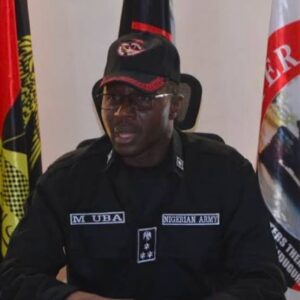
These three incidents cannot be managed with press releases and condolence messages. They require hard, structured, transparent action. For the schoolgirls, there must be an uncompromising focus on intelligence-led rescue, backed by every available resource—air assets, technical surveillance, local networks and international support where necessary. For the Kwara attack, security agencies must not only hunt down the perpetrators but immediately plug the gaps that allowed the assault to happen in the first place. Communities must see patrols, presence and protection—not just hear promises.

For General Uba, the bar is even higher. A Brigadier General should be protected by multiple layers of planning, intelligence and air cover; he is a strategic asset, not a disposable statistic. His ambush and death demand a full probe into the lapses that made it possible. Why was the theatre not staffed and equipped well enough for patrols to be led by subordinate commanders? Why was there no effective Nigerian Air Force support sweeping and dominating the area in advance? Were there intelligence warnings missed, misread or ignored? Were there leaks from within?

These are not questions to be left to rumour or quiet internal memos. They go to the heart of whether Nigerians—civilian and military—can trust their security architecture to function under stress. A transparent, technically credible investigation into all three incidents is essential. It must identify lapses, expose any traitors or saboteurs, recommend sanctions where necessary and, more importantly, lead to visible changes in doctrine, deployment and protection standards.
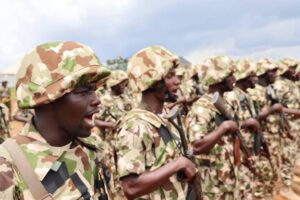
Tinubu’s presence in Nigeria during this period must not be symbolic; it must be operational. As a father, political leader, humanitarian and President, he must ensure that the service chiefs, the Inspector-General of Police, the intelligence community and relevant governors are locked into a coordinated response framework—daily briefings, clear targets, timelines and public accountability. It is not enough to demand results; the presidency must sit at the centre of the effort until the girls are rescued, the Kwara attackers neutralised, and credible answers are given on the Damboa ambush.
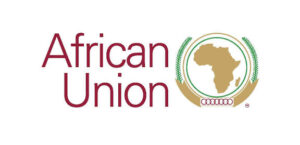
Critics might argue that Nigeria cannot afford to miss such a high-stakes G20 gathering at a time when the country is courting investors and allies. That is true—this summit is strategically important. But a country whose children are being abducted and whose generals are being killed in the field does not gain strength by pretending things are normal abroad while they are unraveling at home. Real partners respect leaders who confront internal crises head-on, not those who prioritise photo opportunities over security emergencies.

Nigeria will still need the G20, and the G20 will still need Nigeria—its market, its energy resources, its regional influence. Serious investors will be watching less to see who sits in the summit hall this week, and more to see whether Nigeria can stabilise its security landscape enough to protect lives and capital. In that sense, Tinubu’s choice to stay is not anti-diplomacy; it is nation-first diplomacy. If he uses this period to drive visible, credible action, it will strengthen his hand at the next summit, not weaken it.

Leadership is often tested by timing. President Tinubu has chosen to be physically present at a moment when Nigerians are frightened, angry and grieving. That is the right instinct. What matters now is whether that instinct is matched by firm decisions, tough questions, and a visible reshaping of how Nigeria confronts terror and protects its people.
If this period produces rescued girls, safer communities and a hard, honest probe into General Uba’s death, history will not remember the summit he skipped—it will remember the crises he stayed back to confront.
The National Patriots.
Headlinenews.news Special Investigative Report.




